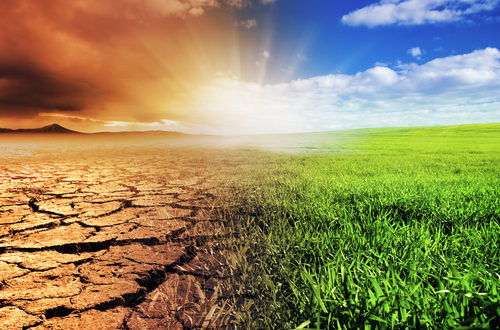While the ongoing effects of climate change continue to bring devastating consequences for the planet, what can Christians do to mobilise and force change for a better tomorrow? Marguerite Marshall writes.
Christians have led many important social movements including the anti-slave trade, apartheid and black equality in North America and now we have a new and urgent challenge.
Last month’s UN special report on global warming says that emergency action is needed if we want to have a safe climate for our children.
If we don’t act now our descendants won’t have a liveable planet according to 97 per cent of the world’s climate scientists.
The UN report says we must almost halve our C02 emissions by 2030 and cut them to zero by around 2050.
To succeed carbon emissions must begin to reduce from 2020 according to Mission 2020, a campaign for a safe climate.
This would limit a rise in temperature to a relatively safe climate of 1.5°C above pre-industrial times.
But according to current plans the world will exceed this safe limit.
Country commitments at the 2015 UN climate conference will result in 3 to 4°C warming by the century’s end. However the countries agreed to review and try to reduce these targets. Worryingly the United States aims to withdraw from this agreement.
Today’s average temperature rise of around 1°C already brings more extreme climate.
This is especially bad news for the disadvantaged who are already impacted most by climate-related extreme weather events and sea level rise.
With the West’s growing secularisation, this is an opportunity to demonstrate and spread Jesus’ message of love and hope. Christians know that anything is possible with God. Our task is to love others and care for all creation.
It’s clear that our leaders are not solving this enormous problem. So what can be done?
At an individual level we can start by living simpler, which accords with the way Jesus taught us to be.
The Uniting Church is supporting the global initiative, Living the Change: Faithful choices for flourishing world.
The campaign run in Australia by the multi-faith Australian Religious Response to Climate Change (ARRCC) challenges believers in various spiritual traditions to make concrete commitments to live more simply, in line with their deeply held beliefs and values.
“There are indeed sacrifices, but there are many co-benefits that come with simpler lifestyles,” says ARCC President Thea Ormerod.
“Just as following Jesus brings fullness of life, moving towards plant-based diets, walking and cycling bring health benefits; using public transport and reducing air travel slows down the frenetic pace of life; more energy efficiency and renewable energy means less pollution; congruence with personal values enhances self-worth.”
Internationally millions of people are taking emergency action in their local communities.
More than 9000 cities representing about 10 per cent of the world population belong to the Global Covenant of Mayors for Climate and Energy.
They plan with partners to limit global warming to 1.5°C or less.
More than a third of the United States population are defying their government’s plan to pull out of the Paris UN climate agreement by November 2020.
The We Are Still In campaign members vow to cut their greenhouse gases, and signatories represent around 120 million Americans, including more than 1000 governors, mayors, businesses, investors and universities.
In February, 70 local Australian councils, representing more than 7.5 million people, vowed to take action to tackle climate change according to The Climate Council. Darebin, Moreland and Byron Bay Councils have emergency plans to reduce their carbon emissions to net zero carbon emissions—Darebin by 2020, Byron Bay by 2025 and Moreland by 2045.
Melbourne city aims to be carbon neutral by 2020, Adelaide city by 2021, Canberra by 2045 and Sydney city by 2050.
Tasmania in 2015-16 became Australia’s first jurisdiction to achieve zero net emissions. South Australia aims to be carbon neutral by 2050.
Is Australia’s population too small to make a difference? Australia is the world’s largest coal exporter according to the International Energy Agency so we have a strong impact on the rest of the world.
For a reasonable chance of a safe climate 90-95 per cent global fossil fuel reserves must stay underground and we must turn to renewable energy according to the Climate Council.
The good news is that when we know we must change quickly we can, as the United States did, moving to a war economy in WWII.
Christians can lead in emergency action too. Recently the Uniting Church took part in the fossil fuel divestment campaign.
The Uniting Church in Australia’s first public statement voiced concern for the wellbeing of the planet and the rights of future generations. It’s time for us to act on that call.
Marguerite Marshall
Marguerite Marshall is a Uniting Church member trained by Al Gore as a leader with The Climate Reality Project.
To learn more about the Living the Change campaign and make a commitment visit livingthechange.net/commitment-tool
 JourneyOnline
JourneyOnline







